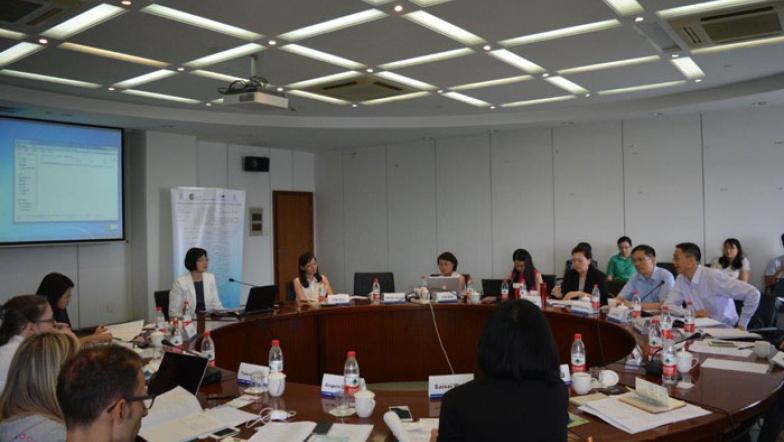Conference on “WTO and Health” co-sponsored by Shanghai University of International Business and Economics

On 11 September 2015, a conference on “WTO and Health: The Law and Policy of Traditional Chinese Medicine” was held in Shanghai, China. The conference was co-sponsored by Shanghai University of International Business and Economics (SUIBE – a member of the WTO Chairs Programme) and the Free University of Brussels. It was organized by the Shanghai Center for Global Trade and Economic Governance and the School of WTO Research and Education, SUIBE.
The WTO Chairs Programme (WCP), China and Europe Taking Care of Healthcare Solutions (CHETCH) and Shanghai University Think-tanks jointly supported the conference.
A total of 50 participants attended the conference, including: Xiaoping WU, a Counsellor in the Intellectual Property Division of the WTO; Rui YAN, Deputy Director of Shanghai Intellectual Property Administration; Xiushan MA, Associate Researcher, Deputy Secretary General of China Intellectual Property Society (CIPS); Xiaoting SONG, Professor, Deputy Dean of the Law School of Tongji University; as well as other participants from the Free University of Brussels and the University of Turin.
The conference was chaired by Professor Zhang LEI, the WTO Chair Holder in China, who is Director of the Shanghai Center for Global Trade and Economic Governance (SC-GTEG) and Dean of the School of WTO Research and Education.
The conference was divided into three parts: “Health Care under WTO Laws”, “IP Protection of Traditional Chinese Medicine (TCM)” and “The Challenges and Opportunities in Europe and China’s cooperation in TCM”.
The conference primarily focused on the latest progress in WTO negotiations, such as public health issues, internationalization of traditional Chinese medicine, legal protection especially intellectual property protection of traditional Chinese medicine, and standardization of traditional Chinese medicine. Scholars from China and other countries, researchers from the University Think-tank as well as teachers and students of the School of WTO Research and Education engaged in a thorough discussion of the topics




